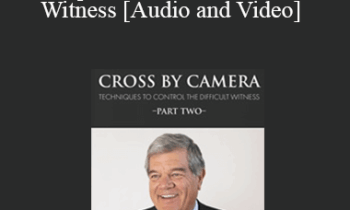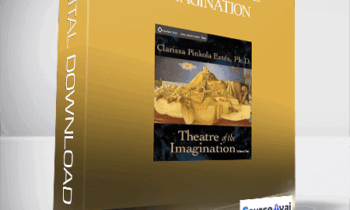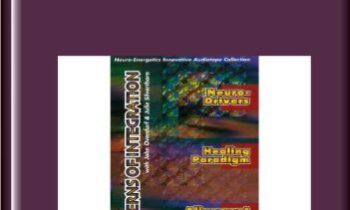![Bhagavad Gita Classes – Swami Paramarthananda - eSys[GroupBuy] Awaiting product image](https://esysgb.com/wp-content/uploads/woocommerce-placeholder.png)
Bhagavad Gita Classes – Swami Paramarthananda
Original price was: $500.00.$28.00Current price is: $28.00.
In StockThe Bhagavad Gita, also referred to as Gita, is a 700–verse Hindu scripture that is part of the ancient Sanskrit epic Mahabharata. It records a conversation between Pandava prince Arjuna and his guide Krishna on a variety of philosophical issues.
Description
Accelerate your learning with the Bhagavad Gita Classes – Swami Paramarthananda course, priced at just Original price was: $500.00.$28.00Current price is: $28.00. on ESYSGB.com! Explore our extensive catalog of over 60,000 downloadable digital courses across Uncategorized. Experience flexible, self-paced learning from experts and save over 80%. Empower your future today!
The Bhagavad Gita, also referred to as Gita, is a 700–verse Hindu scripture that is part of the ancient Sanskrit epic Mahabharata. It records a conversation between Pandava prince Arjuna and his guide Krishna on a variety of philosophical issues.
Purchase Bhagavad Gita Classes – Swami Paramarthananda courses at here with PRICE $500 $28
The Bhagavad Gita, also referred to as Gita, is a 700–verse Hindu scripture that is part of the ancient Sanskrit epic Mahabharata. It records a conversation between Pandava prince Arjuna and his guide Krishna on a variety of philosophical issues.
Faced with a fratricidal war, a despondent Arjuna turns to his charioteer Krishna for counsel on the battlefield. Krishna, through the course of the Gita, imparts to Arjuna wisdom, the path to devotion, and the doctrine of selfless action. The Gita upholds the essence and the philosophical tradition of the Upanishads. However, unlike the rigorous monism of the Upanishads, the Bhagavad Gita also integrates dualism and theism.
Numerous commentaries have been written on the Bhagavad Gita with widely differing views on the essentials, beginning with Adi Sankara’s commentary on the Gita in the eighth century CE. Commentators see the setting of the Gita in a battlefield as an allegory for the ethical and moral struggles of the human life. The Bhagavad Gita’s call for selfless action inspired many leaders of the Indian independence movement including Mohandas Karamchand Gandhi, who referred to the Gita as his “spiritual dictionary”.
Background
Sanjaya, counsellor of the Kuru king Dhritarashtra, after returning from the battlefield to announce the death of Bhisma begins recounting the details of the Mahabharata war. Bhagavad Gita forms the content of this recollection.
The Bhagavad Gita begins before the start of the climactic Kurukshetra war, with the Pandava prince Arjuna becoming filled with doubt on the battlefield. Realizing that his enemies are his own relatives, beloved friends, and revered teachers, he turns to his charioteer and guide, Krishna, for advice. Responding to Arjuna’s confusion and moral dilemma, Krishna explains to Arjuna his duties as a warrior and prince, elaborating on a variety of philosophical concepts.
Characters
- Arjuna, of the Pandavas
- Krishna, Arjuna’s charioteer and guru
- Sanjaya, counsellor of the Kuru king Dhritarashtra
- Dhritarashtra, Kuru king.
Get Bhagavad Gita Classes – Swami Paramarthananda, Only Price $27
Overview of chapters
The Gita consists of eighteen chapters in total:
Gītā Dhyānam: (contains 9 verses) The Gītā Dhyānam is not a part of the main Bhagavad Gita, but it is commonly published with the Gītā as a prefix. The verses of the Gītā Dhyānam (also called Gītā Dhyāna or Dhyāna Ślokas) offer salutations to a variety of sacred scriptures, figures, and entities, characterize the relationship of the Gītā to the Upanishads, and affirm the power of divine assistance. It is a common practice to recite these before reading chapter(s) of the Gita itself.
- 1. Arjuna–Visada yoga: (contains 46 verses) Arjuna has requested Krishna to move his chariot between the two armies. His growing dejection is described as he fears losing friends and relatives as a consequence of war.
- 2. Sankhya yoga: (contains 72 verses) After asking Krishna for help, Arjuna is instructed into various subjects such as, Karma yoga, Jnana yoga, Sankhya yoga, Buddhi yoga and the immortal nature of the soul. This chapter is often considered the summary of the entire Bhagavad Gita.
- 3. Karma yoga: (contains 43 verses) Krishna explains how performance of prescribed duties, but without attachment to results, is the appropriate course of action for Arjuna.
- 4.Jnana–Karma-Sanyasa yoga: (contains 42 verses) Krishna reveals that he has lived through many births, always teaching yoga for the protection of the pious and the destruction of the impious and stresses the importance of accepting a guru.
- 5. Karma–Sanyasa yoga: (contains 29 verses) Arjuna asks Krishna if it is better to forgo action or to act (“renunciation or discipline of action”). Krishna answers that both are ways to the same goal, but that acting in Karma yoga is superior.
- 6. Dhyan yoga or Atmasanyam yoga: (contains 47 verses) Krishna describes the Ashtanga yoga. He further elucidates the difficulties of the mind and the techniques by which mastery of the mind might be gained.
- 7. Jnana–Vijnana yoga: (contains 30 verses) Krishna describes the absolute reality and its illusory energy Maya.
- 8. Aksara–Brahma yoga: (contains 28 verses) This chapter contains eschatology of the Bhagavad Gita. Importance of the last thought before death, differences between material and spiritual worlds, and light and dark paths that a soul takes after death are described.
- 9. Raja–Vidya–Raja–Guhya yoga: (contains 34 verses) Krishna explains how the entire universe is pervaded, created, maintained, and annihilated by His external energy. Verses of this chapter are thought by scholars to be panentheistic.
- 10. Vibhuti–Vistara–yoga: (contains 42 verses) Krishna is described as the ultimate cause of all material and spiritual existence. Arjuna accepts Krishna as the Supreme Being, quoting great sages who have also done so.
- 11. Visvarupa–Darsana yoga: (contains 55 verses) On Arjuna’s request, Krishna displays his “universal form” (Viśvarūpa), a theophany of a being facing every way and emitting the radiance of a thousand suns, containing all other beings and material in existence.
- 12. Bhakti yoga: (contains 20 verses) In this chapter Krishna extols the glory of devotion to God. Krishna describes the process of devotional service (Bhakti yoga). He also explains different forms of spiritual disciplines.
- 13. Ksetra–Ksetrajna Vibhaga yoga: (contains 35 verses) The difference between transient perishable physical body and the immutable eternal soul is described. The difference between individual consciousness and universal consciousness is also made clear.
- 14. Gunatraya–Vibhaga yoga: (contains 27 verses) Krishna explains the three modes (gunas) of material nature pertaining to goodness, passion, and nescience. Their causes, characteristics, and influence on a living entity are also described.
- 15. Purusottama yoga: (contains 20 verses) Krishna identifies the transcendental characteristics of God such as, omnipotence, omniscience, and omnipresence. Krishna also describes a symbolic tree (representing material existence), which has its roots in the heavens and its foliage on earth. Krishna explains that this tree should be felled with the “axe of detachment”, after which one can go beyond to his supreme abode.
- 16. Daivasura–Sampad–Vibhaga yoga: (contains 24 verses) Krishna identifies the human traits of the divine and the demonic natures. He counsels that to attain the supreme destination one must give up lust, anger, greed, and discern between right and wrong action by discernment through Buddhi and evidence from the scriptures.
- 17. Sraddhatraya-Vibhaga yoga: (contains 28 verses) Krishna qualifies the three divisions of faith, thoughts, deeds, and even eating habits corresponding to the three modes (gunas).
- 18. Moksha–Sanyasa yoga: (contains 78 verses) In this chapter, the conclusions of previous chapters are summed up. Krishna asks Arjuna to abandon all forms of dharma and simply surrender unto him. He describes this as the ultimate perfection of life.
Swami Paramarthananda:
Traditionally the commentators belong to spiritual traditions or schools (sampradaya) and Guru lineages (parampara), which claim to preserve teaching stemming either directly from Krishna himself or from other sources, each claiming to be faithful to the original message. In the words of Mysore Hiriyanna, “[The Gita] is one of the hardest books to interpret, which accounts for the numerous commentaries on it – each differing from the rest in an essential point or the other.”
Different translators and commentators have widely differing views on what multi-layered Sanskrit words and passages signify, and their presentation in English depending on the sampradaya they are affiliated to.
Swami Paramarthananda studied in Sandeepany Sadhanalaya of Chinmaya Mission. Took Sanyasa from Swami Dayanandaji. He is devoted to both Masters – Swami Chinmayananda and Swami Dayananda. Swami later started taking advaitha vedanta shastra classes in Chennai. Studied in Sandeepany Sadhanalaya of Chinmaya Mission. Later started taking classes in Chennai.
Today Swami Paramarthananda is the one of the rare scholar we have with us who speaks on Shastras. His talks are nector for ears. His lectures are stunning brilliant and simple to understand! Swami Paramarthananda is a senior disciple of Swami Dhayananda Saraswathi, is an ‘encyclopedia’ of Vedanta and is in the field of teaching basic and advanced scriptural works for the past 25 years
Get Bhagavad Gita Classes – Swami Paramarthananda, Only Price $27
Tag: Bhagavad Gita Classes – Swami Paramarthananda Review. Bhagavad Gita Classes – Swami Paramarthananda download. Bhagavad Gita Classes – Swami Paramarthananda discount.
Purchase Bhagavad Gita Classes – Swami Paramarthananda courses at here with PRICE $500 $28
Build a robust future with the Bhagavad Gita Classes – Swami Paramarthananda course at ESYSGB.com! Gain lifetime access to high-impact digital content, meticulously designed to boost your career and personal growth.
- Lifetime Access: Permanent and unlimited access to your purchased courses.
- Exceptional Savings: Enjoy discounts of up to 80% off original prices.
- Secure Payments: Your transactions are fully protected and safe.
- Practical Knowledge: Acquire actionable skills for immediate application.
- Instant Availability: Start learning right after completing your purchase.
- Cross-Device Access: Study seamlessly on any desktop, tablet, or mobile device.
Unlock your potential with ESYSGB.com!












![[Audio] CC16 Law & Ethics 03 - What goes around... - Steven Frankel, PhD, JD](https://esysgb.com/wp-content/uploads/2023/04/Audio-Only-CC16-Law-Ethics-03-What-goes-around.-Steven-Frankel-PhD-JD-350x210.png)




